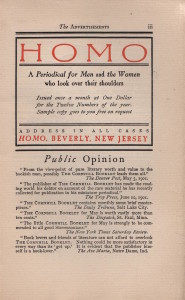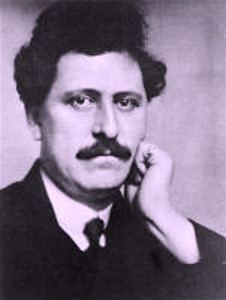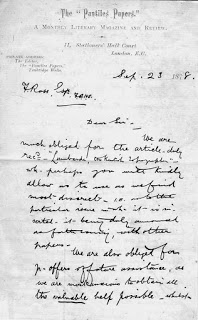Notes and Queries is a British periodical. It was originally subtitled "a medium of inter-communication for literary men, artists, antiquaries, genealogists, etc". Its motto was "When found, make a note of", from the catchphrase of Capt. Cuttle, a character in Dickens' Dombey and Son (1848). Dickens himself was a contributor, as were Dante Gabriel Rossetti, Walter Skeat and Frederick Rolfe (Baron Corvo.) Most contributors were pseudonymous or anonymous. Ironically it was first produced to combat the perceived lowering of intellectual standards caused by 'railway mania' - but the trains allowed for its swift printing and distribution. Parallels with the web are often made - some referring to it as the 'Victorian Internet.'

The most intriguing section was 'Queries' where contributors asked for information on subjects they were studying. A typical query on London history from one 'E.F.R.'
The Strand Maypole.—What was the ultimate fate of the "tall Maypole" which "once o'erlooked the Strand"? The answer came in the next issue. ***
166 years later Jot101's motto 'found it, read it, posted it' echoes Captain Cuttle's "When found,make a note of" and in the same spirit here are a couple of queries:
Somewhere Oscar Wilde wrote the most significant thing in British history was the leather trousers of some royal personage. Not sure where he wrote this and what he actually said. Possibly in undergraduate notes.
Colin Wilson wrote that it was hard to imagine a potentially happier situation than a young millionaire lying on his yacht in the Aegean with all the summer still ahead of him. Possibly girls were lying by his side...Where was this? It might have been in a book of essays - some on H P Lovecraft.
***It was taken down about the year 1717, when it was found to measure a hundred feet. It was obtained by Sir Isaac Newton, and borne on a carriage, for timber, to Wanstead, in Essex, the seat of the Earl of Tylney, where, under the direction of the Reverend Mr. Pound Breton, it was placed in the Park, for the erection of a telescope, the largest then in the world, presented by a French gentleman to the Royal Society.
 Found on the front cover of the Boston- published bibelot The Cornhill Booklet of July 1901 is this advert for ‘HOMO, A Periodical for Men and the Women who look over their shoulders’. The advert tells us that the magazine was issued once a month at one dollar for the twelve numbers of the year and that the address in all cases was HOMO, BEVERLY, NEW JERSEY.
Found on the front cover of the Boston- published bibelot The Cornhill Booklet of July 1901 is this advert for ‘HOMO, A Periodical for Men and the Women who look over their shoulders’. The advert tells us that the magazine was issued once a month at one dollar for the twelve numbers of the year and that the address in all cases was HOMO, BEVERLY, NEW JERSEY.
 Found in a copy of the literary periodical Today for August 1919 is this advice for aspiring authors from its editor, Holbrook Jackson (pictured):
Found in a copy of the literary periodical Today for August 1919 is this advice for aspiring authors from its editor, Holbrook Jackson (pictured):
